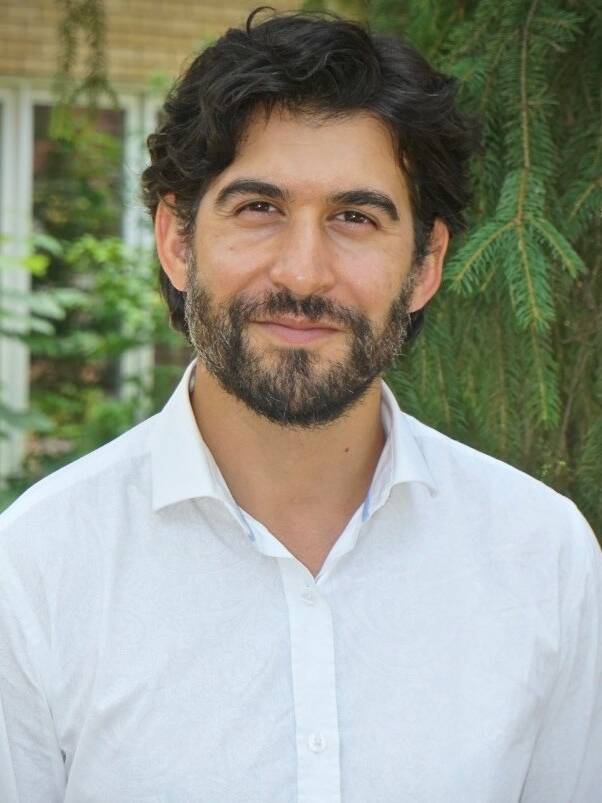Muslims’ plight, imam’s words led U of M trio to al-Qaeda
Advertisement
Read this article for free:
or
Already have an account? Log in here »
To continue reading, please subscribe:
Monthly Digital Subscription
$1 per week for 24 weeks*
- Enjoy unlimited reading on winnipegfreepress.com
- Read the E-Edition, our digital replica newspaper
- Access News Break, our award-winning app
- Play interactive puzzles
*Billed as $4 plus GST every four weeks. Offer only available to new and qualified returning subscribers. Cancel any time.
To continue reading, please subscribe:
Add Winnipeg Free Press access to your Brandon Sun subscription for only
$1 for the first 4 weeks*
*$1 will be added to your next bill. After your 4 weeks access is complete your rate will increase by $0.00 a X percent off the regular rate.
Read unlimited articles for free today:
or
Already have an account? Log in here »
Four years after 9/11, a student enters the Muslim prayer room at the University of Manitoba where a commemorative service has just ended.
“I don’t feel any sympathy for victims of terrorist attacks. They don’t care about us, so why should we care about them?” Ferid Imam tells fellow student Youcef Soufi.
The brief exchange between Imam and Soufi is a pivotal moment in the author’s Homegrown Radicals: A Story of State Violence, Islamophobia and Jihad in the Post-9/11 World.

Supplied photo
Youcef Soufi
Soufi has performed a valuable service for all Canadians — Muslims and non-Muslims — by telling the story of three of his classmates at the University of Manitoba and the path they took to join al-Qaeda.
The former chair of the Canadian Association for the Study of Islam and Muslims, Soufi is a researcher in Islamophobia with the Centre for Human Rights Research at the University of Manitoba and author of a book on Islamic law.
He travelled with all three men on the hajj, the pilgrimage to Mecca. A few months after they all returned to Canada in 2007, his three colleagues suddenly vanished.
His portrayals of the men help us understand the all-too-human beings behind the terrorist label.
Ferid Imam, born in 1980, left Ethiopia at age 11 to live with his sister in Winnipeg after their mother died. His natural leadership abilities led him to become president of the Muslim Students Association.
Miawand Yar was born in 1983 in Pakistan, the son of Afghan refugees. His father, a doctor, was murdered when Yar was still a child. He moved to Winnipeg with his brother and mother, started selling drugs and was arrested. After a judge gave him a second chance, Yar found acceptance and meaning in Winnipeg’s Muslim community.
Muhanad Al Farekh is an American citizen, born in 1985 in Houston. His parents left Palestine in 1948, became citizens of Jordan and lived for a time in the U.S. When he was 17, his parents sent him to live with his uncle and grandmother in Winnipeg to benefit from a Western education.
How could any of these young men, enjoying all the comforts of Canada, be lured into joining a terrorist group?
Soufi’s answer: Look in the mirror, non-Muslim Canadians.
Canadian Muslims suffered untold psychological damage watching thousands of Muslims die in Afghanistan and Iraq at the hands of their own government and its American allies.
Canadian Muslims were also offended by media coverage of the war, in which Canadian and American casualties were named and reported on, but Muslim victims almost always remained nameless, their stories untold.
Many Muslims interpret jihad as the struggle to maintain religious ideals in a material world. Others believe it refers to the need to defend oneself and other Muslims against attack.
The war on terror not only created more sympathy for the terrorists, it created a new and unusually seductive ideology of jihad, espoused by American imam Anwar Al-Awlaki.
Al-Awlaki had been a spokesperson for moderate Islam after 9/11.

Homegrown Radicals
But his recorded lectures, widely available on CD, took a violent turn in 2004 and began urging all Muslims to avenge the unjust deaths of their brothers and sisters.
Imam, Yar and Al Farekh were fertile ground for his message.
After they left, many people in the Winnipeg Muslim community were subjected to rigorous investigation for years by the Canadian Security Intelligence Service (CSIS).
While the agency eventually concluded the community had no part in the men’s decision, Soufi says, “Those who have suffered most have come to see the Kafkaesque nature of being Muslim and knowing a radical.”
Imam and Yar were killed by U.S. drones, as was Al-Awlaki. Al Farekh, a U.S. citizen, was captured, tried and sentenced to 45 years in prison.
Homegrown Radicals invites all Canadians to reckon with the fallout here at home more than 20 years after the war on terror began.
In an eloquent epilogue, the author asks us to consider how much non-Muslims have really learned or changed in light of Canada’s support for Israel in the Israel-Hamas war.
Muslim Canadians must struggle to overcome the understandable sense of betrayal and injustice Soufi so clearly documents.
If non-Muslim Canadians grasp Soufi’s central message and express empathy, contrition and repentance for their complicity in the pain the community has suffered, perhaps forgiveness and healing can begin.
Donald Benham is a freelance writer living near Beausejour.


